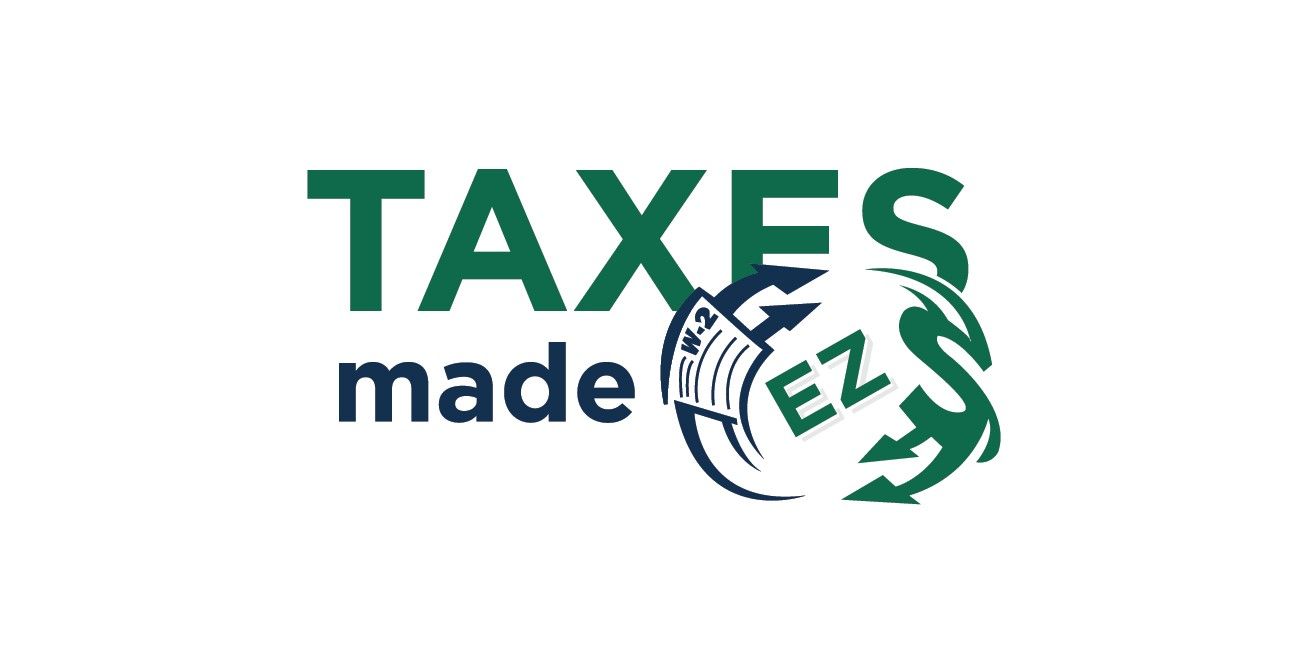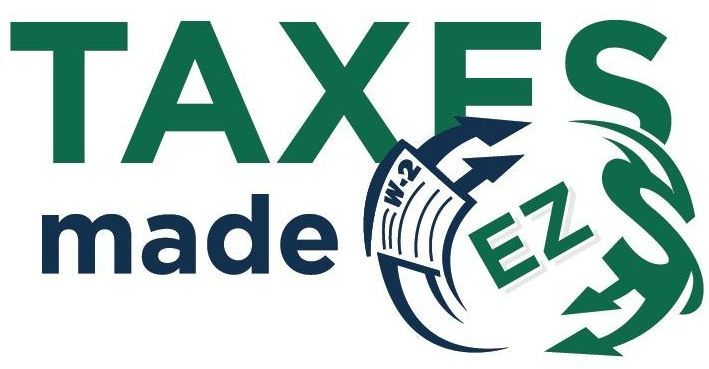The Importance of Tax Planning for High-Income Earners
At Taxes Made EZ, we understand that tax planning is essential for individuals in all financial situations, but it becomes even more critical for high-income earners. Proper tax planning can optimize deductions, maximize savings, and create a long-term strategy to reduce tax burdens while fully complying with tax laws. Below are some key strategies and tips specifically for high-income earners.
Minimize Your Tax Liability
The U.S. tax system is progressive, meaning that your income increases, so does your tax rate. High-income earners fall into the highest tax brackets, with marginal rates reaching 37%. Strategic tax planning is vital to reduce your taxable income and minimize your debt.
One effective way to do this is by contributing to tax-deferred retirement accounts such as a 401(k) or traditional IRA. These contributions lower your taxable income while helping you build a solid retirement plan. Additionally, contributing to Health Savings Accounts and 529 college savings plans offers tax advantages. HSAs provide tax-free funds for qualified medical expenses, and 529 plans help you save on education costs.
Maximize Deductions and Credits
For high-income earners, itemizing deductions can provide far more tax savings than the standard deduction. Some of the most beneficial deductions include mortgage interest, charitable contributions, and state and local taxes up to $10,000. Planning ahead can further enhance these deductions by strategically timing charitable donations or deferring income into the next tax year.
Tax credits can also directly reduce your tax bill, making them extremely advantageous. High-income earners should explore credits for energy-efficient home improvements, educational expenses, and other applicable credits. These credits can significantly lower your overall tax liability, and checking eligibility each tax year is essential.
Manage Investment Income
High-income earners often generate significant income through investments in stocks, bonds, real estate, and other assets. Investment income is subject to different tax rules, and smart planning is essential to minimize taxes in this area.
For example, holding investments for more than a year benefits you from lower long-term capital gains tax rates, while short-term gains are taxed at your regular income tax rate. Tax-loss harvesting can also be a valuable strategy—selling losing investments to offset gains and reduce taxable income. Additionally, focusing on assets that generate qualified dividends, which are taxed at the lower capital gains rate, can provide further tax savings compared to ordinary income.
Consider Estate and Gift Tax Strategies
For individuals with significant wealth, estate and gift taxes can take a large chunk of your assets, with estate tax rates reaching as high as 40%. Estate planning is crucial to minimize the impact of these taxes and protect your wealth for future generations.
High-income earners can take advantage of strategies such as gifting assets to heirs. The annual exclusion limit allows you to gift up to $17,000 per recipient, tax-free. Additionally, establishing irrevocable trusts can protect your assets from estate taxes while enabling you to pass on wealth in a tax-efficient manner.
Partner With a Tax Professional
At Taxes Made EZ, we are committed to putting your financial goals and circumstances first. Our team stays current on the latest federal and state tax laws, and we specialize in working with high-income earners and individuals with complex financial situations. We’re here to help you navigate the intricacies of tax planning, ensuring you take full advantage of every opportunity to reduce your tax burden.
When you partner with us, you can feel confident knowing that our tax experts are working to safeguard your financial future. Let us help you simplify your tax-filing process while maximizing your savings.
Call us today at (856) 232-0958
or schedule a consultation
to learn more.

A Roth IRA, or individual retirement account, is a powerful tool to help secure your financial future. Unlike traditional retirement accounts, contributions to a Roth IRA are made with after-tax dollars. This means you pay taxes on the money upfront, but the funds grow tax-free, and withdrawals in retirement are also tax-free, as long as certain conditions are met. Below, we’ll explore the benefits of a Roth IRA and strategies to maximize its potential. Understand the Benefits A Roth IRA offers several key benefits that make it an attractive option for retirement planning. The primary advantage is tax-free growth. Since you contribute after-tax dollars, your investment earnings grow tax-free, and withdrawals made after retirement, once you meet the conditions, are also tax-free. To qualify, you must have held the account for at least five years and be 59 and a half years old. Additionally, unlike traditional IRAs, Roth IRAs do not require mandatory distributions at age 73. This lets your investments grow for as long as you want, giving you greater control and flexibility over your financial future. Maximize Contributions Maximizing your contributions is essential to get the most out of your Roth IRA. While large donations are ideal, even negligible, consistent amounts can add up over time, thanks to the power of compound interest. For 2024, the contribution limit is $6,500 per year, or $7,500 if you're 50 years old or older. Check income eligibility limits, as they can affect how much you can contribute. Starting early and contributing regularly can significantly boost your retirement savings in the long run. Diversify Your Investment Strategy It’s important to remember that a Roth IRA is an account, not an investment itself. You can invest in stocks, bonds, mutual funds, ETFs, and more within the Roth IRA. Diversifying your investments is crucial to manage risk and optimize growth. A balanced mix of growth-focused assets like stocks and more conservative investments like bonds can provide long-term stability. Aim for an investment strategy that aligns with your age and risk tolerance, and adjust as you approach retirement. Monitor and Adjust Over Time As your life circumstances and financial goals evolve, your Roth IRA should evolve with them. Regularly review your account, assess your contributions, and fine-tune your investment strategy. Whether your income increases or your retirement timeline shifts, periodic adjustments can ensure that your Roth IRA remains aligned with your financial goals. Combine With Other Retirement Plans One of the advantages of a Roth IRA is that it can complement other retirement plans, such as a 401(k). A 401(k) offers tax-deferred savings, while a Roth IRA grows tax-free. Having a combination of tax-deferred and tax-free accounts gives you more flexibility in retirement, allowing you to manage your withdrawals more efficiently and potentially reduce your overall tax burden. Plan for a Secure Future Planning your financial future with a Roth IRA can provide long-term financial security, especially when paired with other retirement strategies. Consider consulting one of our expert tax professionals to ensure you’re making the most of your Roth IRA and other retirement accounts. We can guide you through the process and help you maximize your retirement savings. Call us today at 856-232-0958 or schedule a consultation to get started.

Owing back taxes can seem overwhelming, but with the right approach and the help of our experts, you can repay and avoid any significant penalties or future issues. At Taxes Made EZ, we have handled many unique tax situations and understand how to help you. Below are some steps you and one of our tax experts can take together to combat taxes. Determine How Much You Owe The IRS will typically notify you and specify the amount that you owe. Additionally, you can review tax notices, access your tax transcript, or contact the IRS to determine the amount. It is essential to maintain open communication with the IRS and track the notices or letters issued. File Your Late Tax Returns If you cannot pay your balance immediately, filing your tax return is still important. Failing to do so can result in significant penalties. Book an appointment with one of our experts today, and we will walk you through the entire tax-filing process. We are with you every step of the way, from preparation to filing and repayment. There is no situation we cannot handle, and we will ensure your filing process is as simple, easy, and stress-free as possible. Review Your Options to Pay You have several repayment options. We can help you determine what is most sensible for your financial situation. Pay in full: The quickest way to resolve this issue is to pay in full. However, this may only be an option for some. Short-term plan: If you need more time and can pay in up to 180 days, you may enroll in a short-term repayment plan that does not require a formal application. Long-term plan: The IRS also offers long-term payment plans, or an installment agreement, to pay over time. You may accrue some fees, but dividing your debt into more manageable monthly payments will allow you to divide it. OIC: An Offer in Compromise (OIC) program allows you to settle your tax debt for less than the total amount based on your financial situation and if you qualify. Temporary delay: If you are facing severe financial hardship, you can request that the IRS temporarily delay collections until your situation improves. However, you will continue to rack up interest and penalties. Address Any Penalties or Interest Back taxes can come with interest and penalties that quickly add to your debt. Below are some to be aware of: Failure to file: typically a penalty of 5% of unpaid taxes for each month the return is late, up to 25% Failure to pay: 0.5% of the unpaid taxes for each month it's late, increasing up to 25% Interest on unpaid taxes: interest is charged from the original due date and compounds daily Sometimes, you may request a penalty abatement, which can reduce or remove penalties. This is usually granted with a valid reason for not paying, such as illness or a natural disaster. Avoid Future Tax Problems Once you are clear, avoiding this issue in the future is essential. You may want to submit an updated W-4 to your employer to ensure you withhold enough from your paychecks. If you are self-employed or receive untaxed income, make quarterly estimated payments to avoid accumulating debt. Stay organized, detailed, and diligent when tracking your expenses to simplify your taxes and avoid stress. Call us at (856) 232-0958 or schedule a call today.







